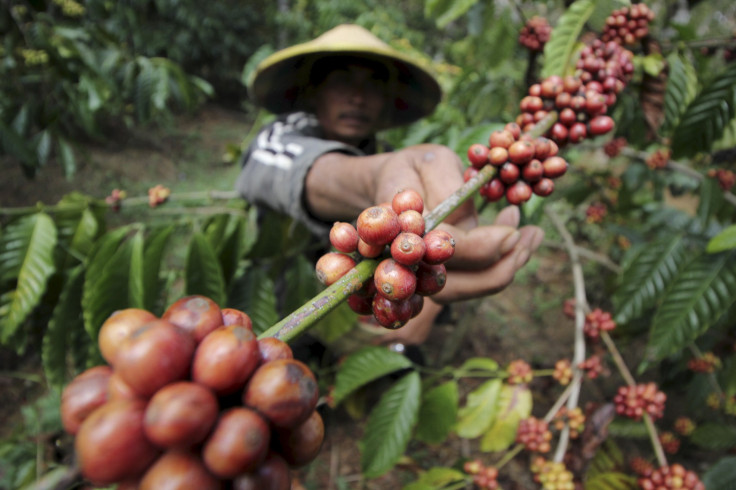Global demand for coffee squeezes poor farmers, water supply in poorer nations

The high demand in worldwide coffee isn’t paying off for coffee bean farmers in poorer nations along the equator, a new research suggests. The boom of coffee consumption over the past 20 years when people started to drink more coffee has generally created harsher economic and ecological consequences to farmers and the coffee-producing poor nations.
The new study, titled "Trading in Crisis: Coffee, Ecological Rift, and Ecologically Unequal Exchange," reveals that the technification of coffee for mass production and to meet greater demand affected the water supply of the coffee-producing nations to grow their crops.The shift to "technified" coffee production in the 1970s and 1980s has made the heavy coffee-producing nations, such as Honduras, Colombia, Guatemala, Brazil, Vietnam and Ethiopia to suffer from the consequences.
The researcher Alexander Myers, a doctoral candidate in sociology at the University of Kansas, said before the technified coffee production, farmers used to grow coffee plants in smaller shaded areas which allows them to use much less water and to diversify their crops. Also, the farmers can use their land to plant other crops. But the shift to technified production requires farmers to exclusively grow coffee to meet the growing demand.
The average cup of coffee takes 140 litres or 37 gallons of water to grow, according to the estimate of some ecological researchers. The new type of coffee bean being used after the technification of coffee production requires much more water to produce, which is "very taxing environmentally," Myers said.
"Historically, coffee has been exploited by the West in various ways because it's consumed in rich countries and grown in poor ones" Myers stated. The poor farmers who have a small plot of land may be relying almost exclusively on coffee sales to sustain themselves, he added.
The economies of coffee-producing nations were nearly wiped out by the major drops in commodities prices of coffee beans to around 50 cents per pound in 2001. "That really hit the farmers hard, it caused a lot of these family farms that have historically relied on coffee to keep themselves afloat," Myers said.
In the past two decades, however, the fair trade movement has helped to balance slightly both the economic and ecological changes, especially for poorer farmers in developing countries. The movement may help raise awareness, especially among coffee drinkers in Western nations, Myers said.
Myers suggests that the consumers' choices to buy such products have both positive and negative impacts to the coffee industry. “To keep that in mind is important, especially in researching what is behind these consumption choices."
Contact the writer at feedback@ibtimes.com.au or tell us what you think below






